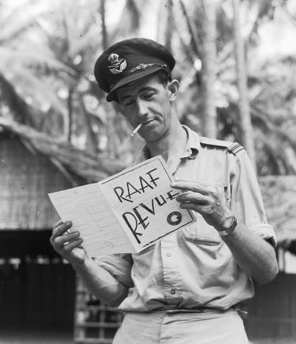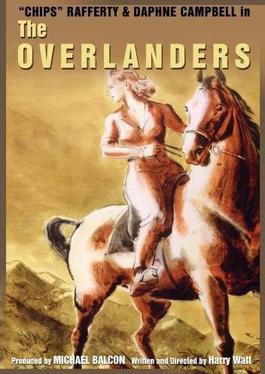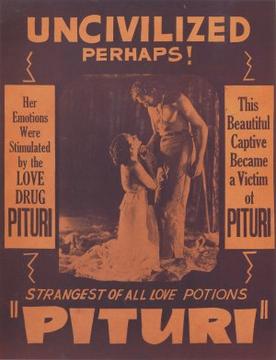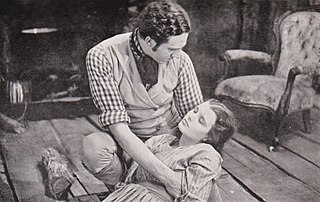Related Research Articles

The cinema of Australia began with the 1906 production of The Story of the Kelly Gang, arguably the world's first feature film. Since then, Australian crews have produced many films, a number of which have received international recognition. Many actors and filmmakers with international reputations started their careers in Australian films, and many of these have established lucrative careers in larger film-producing centres such as the United States.

Frederick George Peter Ingle Finch was an English-Australian actor of theatre, film and radio.

Jedda, released in the UK as Jedda the Uncivilised, is a 1955 Australian film written, produced and directed by Charles Chauvel. His last film, it is notable for being the first to star two Aboriginal actors, Robert Tudawali and Ngarla Kunoth in the leading roles. It was also the first Australian feature film to be shot in colour.

Charles Edward Chauvel OBE was an Australian filmmaker, producer and screenwriter and nephew of Australian army General Sir Harry Chauvel. He is noted for writing and directing the films Forty Thousand Horsemen in 1940 and Jedda in 1955. His wife, Elsa Chauvel, was a frequent collaborator on his filmmaking projects.

John William Pilbean Goffage MBE, known professionally as Chips Rafferty, was an Australian actor. Called "the living symbol of the typical Australian", Rafferty's career stretched from the late 1930s until he died in 1971, and during this time he performed regularly in major Australian feature films as well as appearing in British and American productions, including The Overlanders and The Sundowners. He appeared in commercials in Britain during the late 1950s, encouraging British emigration to Australia.
Ronald Grant Taylor was an English-Australian actor best known as the abrasive General Henderson in the Gerry Anderson science fiction series UFO and for his lead role in Forty Thousand Horsemen (1940).

The Overlanders is a 1946 British-Australian Western film about drovers driving a large herd of cattle 1,600 miles overland from Wyndham, Western Australia through the Northern Territory outback of Australia to pastures north of Brisbane, Queensland during World War II.

Eureka Stockade is a 1949 British film of the story surrounding Irish-Australian rebel and politician Peter Lalor and the gold miners' rebellion of 1854 at the Eureka Stockade in Ballarat, Victoria, in the Australian Western genre.

Mary Maguire was an Australian-born actress who briefly became a Hollywood and British film star in the late 1930s.

The Rats of Tobruk is a 1944 Australian film directed by Charles Chauvel. An abridged version was released in the United States in 1951 as The Fighting Rats of Tobruk. The film follows three drover friends who enlist in the Australian Army together during World War II. Their story is based on the siege of the Libyan city of Tobruk in North Africa by Rommel's Afrika Korps. The partly Australian defenders held the city for 250 days before being relieved by British forces.

Forty Thousand Horsemen is a 1940 Australian war film directed by Charles Chauvel. The film tells the story of the Australian Light Horse which operated in the desert at the Sinai and Palestine campaign during World War I. It follows the adventures of three rowdy heroes in fighting and romance. The film culminates at the Battle of Beersheba which is reputedly "the last successful cavalry charge in history". The film was clearly a propaganda weapon, to aid in recruitment and lift the pride of Australians at home during World War II. It was one of the most successful Australian movies of its day. It was later remade in 1987 as The Lighthorsemen.
Sons of Matthew is a 1949 Australian film directed and produced and co-written by Charles Chauvel. The film was shot in 1947 on location in Queensland, Australia, and the studio sequences in Sydney. Sons of Matthew took 18 months to complete, but it was a great success with Australian audiences when it finally opened in December 1949.

Uncivilised is a 1936 Australian film directed by Charles Chauvel. It was an attempt by Chauvel to make a more obviously commercial film, and was clearly influenced by Tarzan.

Heritage is a 1935 Australian historical film directed by Charles Chauvel.
Greenhide is a 1926 Australian film directed by Charles Chauvel. Only part of the film survives.

Bush Christmas is a 1947 Australian–British comedy film directed by Ralph Smart and starring Chips Rafferty. It was one of the first films from Children's Entertainment Films, later the Children's Film Foundation.
South West Pacific is a 1943 propaganda short Australian film directed by Ken G. Hall which focuses on Australia as the main Allied base in the South West Pacific area. Actors depict a cross section of Australians involved in the war effort.
Russia Aflame is a 1943 short Australian documentary directed by Charles Chauvel.
Eleventh Hour is a 1942 Australian short documentary film from director Ken G. Hall for the Department of Information.
Another Threshold is a 1942 Australian propaganda short film directed by Ken G. Hall and starring Peter Finch.
References
- ↑ "Women at Work – Bush Nurses Claim Our Attention". The Mercury . Hobart, Tas. 10 October 1942. p. 8. Retrieved 16 March 2015– via National Library of Australia.
- ↑ "N.Z. Newspaper Owners Resent Censorship". The Age . No. 27, 293. Victoria, Australia. 9 October 1942. p. 2. Retrieved 15 November 2023– via National Library of Australia.
- ↑ "News in Brief". The News . Adelaide. 9 October 1942. p. 3. Retrieved 16 March 2015– via National Library of Australia.
- ↑ "Peter Finch in Austerity Film", ABC Weekly, 4 (37), Sydney: Australian Broadcasting Commission, 12 September 1942, retrieved 14 November 2023– via Trove
- ↑ "New Films". The Sydney Morning Herald . 12 October 1942. p. 7. Retrieved 16 March 2015– via National Library of Australia.
- ↑ "At City Theatres". The Telegraph . Queensland, Australia. 10 October 1942. p. 4 (Sports Final). Retrieved 15 November 2023– via National Library of Australia.
- ↑ "The New Films". The Daily Telegraph . Vol. III, no. 48. New South Wales, Australia. 11 October 1942. p. 23. Retrieved 15 November 2023– via National Library of Australia.
- ↑ "Newsreels – Chauvel War Short". Smith's Weekly . Vol. XXIV, no. 33. New South Wales, Australia. 17 October 1942. p. 19. Retrieved 15 November 2023– via National Library of Australia.